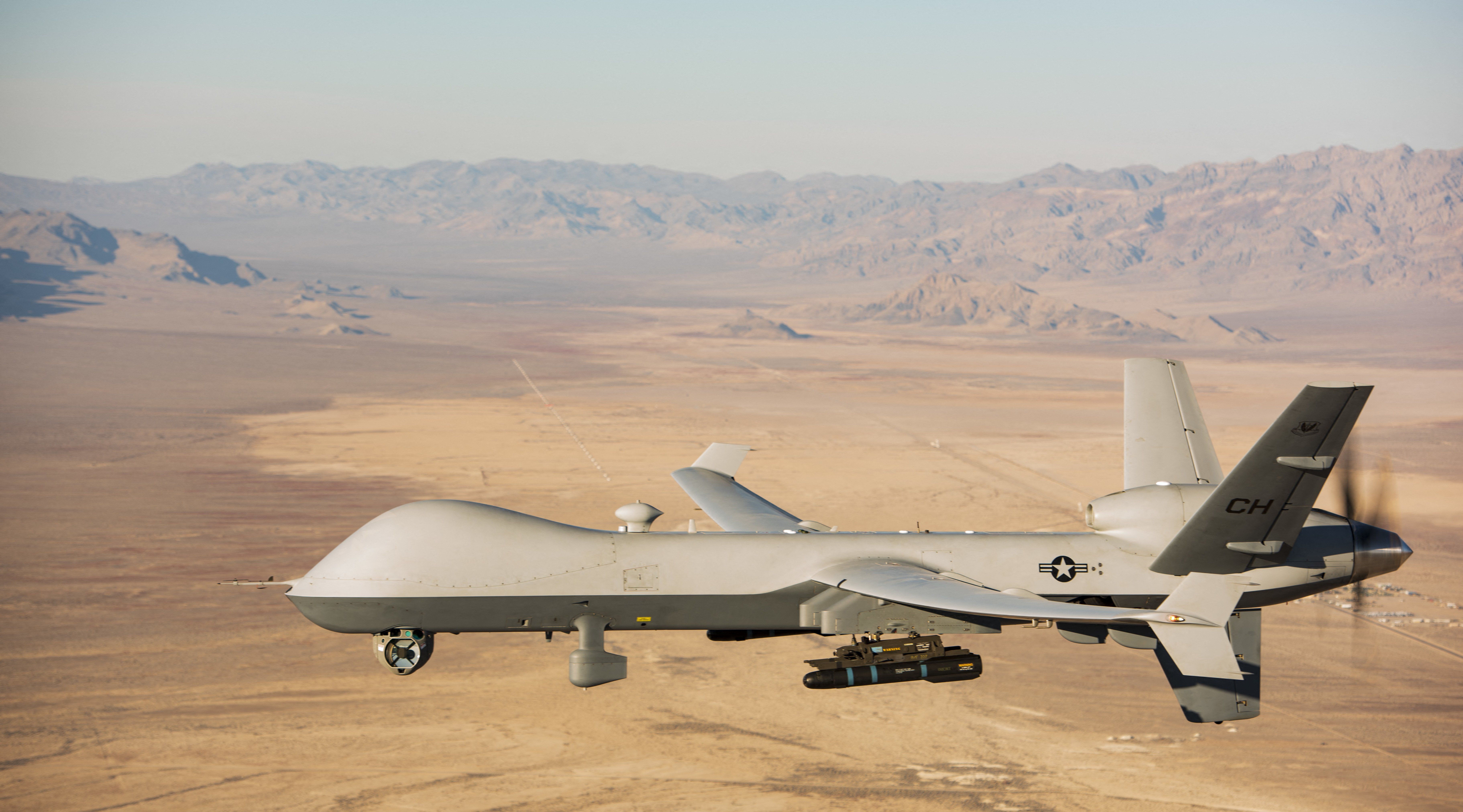What We’re Watching: Drone drama, DeSantis vs. Ukraine, Japan hearts South Korea, Pakistan-Khan standoff
Drone drama over the Black Sea
In what is so far the closest thing to a direct clash between the US and Russia over Ukraine, a Russian jet on Tuesday crashed into an American drone over the Black Sea, sending the unmanned craft hurtling into the water.
Moscow disputes the claim, saying its jets didn't hit the drone. The US accused the pilots of two Russian Su-27s of being “unprofessional” and “environmentally unsafe” for harassing and “dumping fuel” on the $32 million MQ-9 Reaper drone.
But scholars point out that the US didn’t call the act “unlawful.” Russia was evidently within its rights to disrupt a drone in international territory that was almost certainly gathering intel for Moscow’s adversaries in Kyiv. Still, the incident shows the dangers of US and Russian military hardware operating in such close proximity, even if they aren’t in direct conflict.
Ron goes Don on Ukraine
Speaking of those dangers, Florida Gov. Ron DeSantis has waded into some foreign policy waters of his own, telling FOX News host Tucker Carlson he thinks that the Russia-Ukraine “territorial dispute” is not a vital US national interest and that Biden’s “blank check” for Kyiv is a distraction from more pressing issues like China.
This puts Desantis at odds with much of the GOP but firmly in line with … former President Donald Trump, whom he is all but sure to challenge for the Republican nomination in 2024.
Political wrangling aside, Desantis may be trying to catch a broader trend: In February, polls showed that only 48% of Americans favored providing weapons to Ukraine, down 12 points from May of last year. Is Ron on to something?
Japan and South Korea’s efforts to strengthen ties
South Korean President Yoon Suk Yeol and Japanese PM Fumio Kishida are meeting in Tokyo this week in a bid to forge stronger economic and security ties. Diplomatic engagement between the countries has stalled in recent years owing to territorial disputes and Japan’s rearmament amid what Koreans see as Japan’s efforts to whitewash World War II-era atrocities.
This follows a recent landmark agreement between Tokyo and Seoul for a South Korean fund to compensate victims of Japan’s forced labor camps during its 20th-century colonization of the Korean peninsula – a deal that has proven unpopular with South Koreans for not holding Japan directly and financially accountable.
Improved cooperation would help both countries meet the increasing security challenges posed by China and North Korea in the region. Restoring trade links between South Korea and Japan, meanwhile, will help alleviate high-tech global supply chains. But for this to work, Kishida’s government must first win over South Korean hearts and minds.
Imran Khan 1 - Pakistan’s government 0
Pakistani security forces on Wednesday withdrew from near Imran Khan’s home in Lahore after failing to detain the former PM, despite having an arrest warrant. The reason: to allow a big cricket match to take place in the city.
As the standoff unfolded, Khan — who used to captain the national team in cricket-crazy Pakistan — took to Twitter, urging his supporters not to give up. He was ousted in a no-confidence vote last April over allegations of corruption and “terrorism”, which he and his supporters dismiss as politically motivated. But since then, Khan has fervently sought to win back the top job, leading a populist movement against Pakistan’s political elite and all-powerful army, whom he accused of being behind an assassination attempt against him in Nov. 2022.
So far, the government was too scared of igniting his base to arrest the former PM, even after he was a no-show in court. Yet, in a country where the army calls many political shots, perhaps he’s made too many enemies. And if he’s behind bars when Pakistanis vote in provincial elections this fall, will his fans remain silent?
